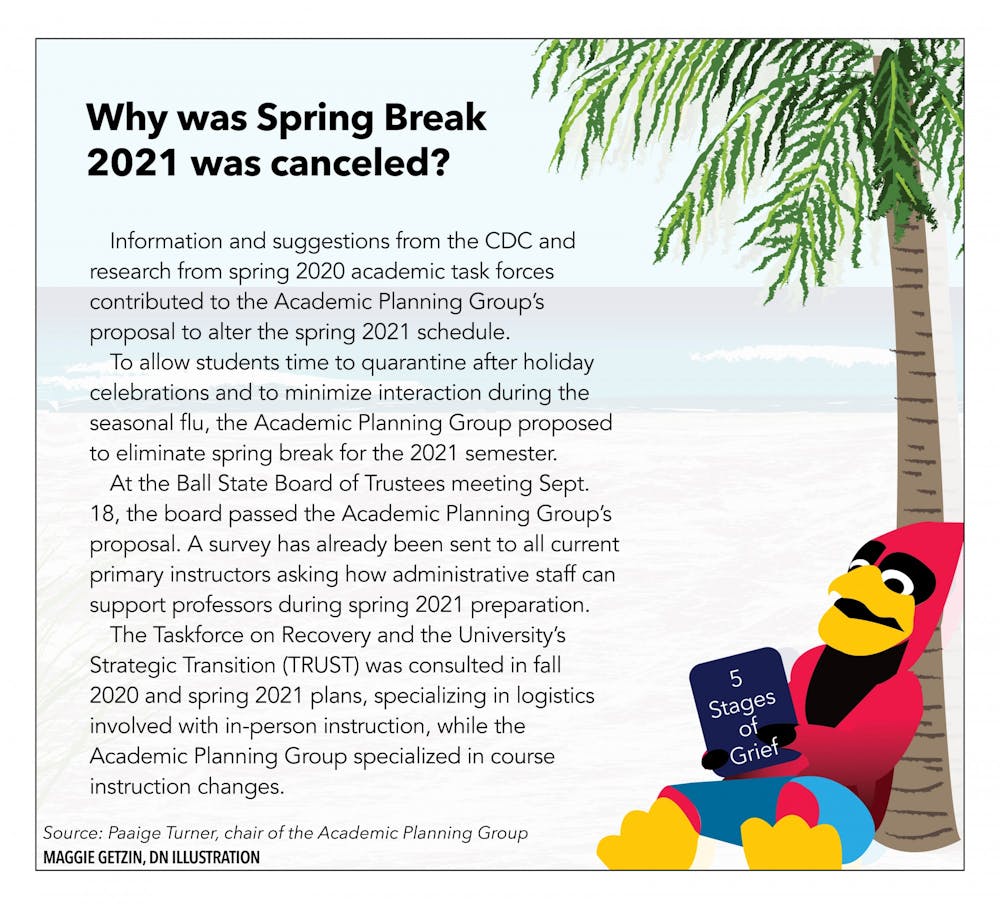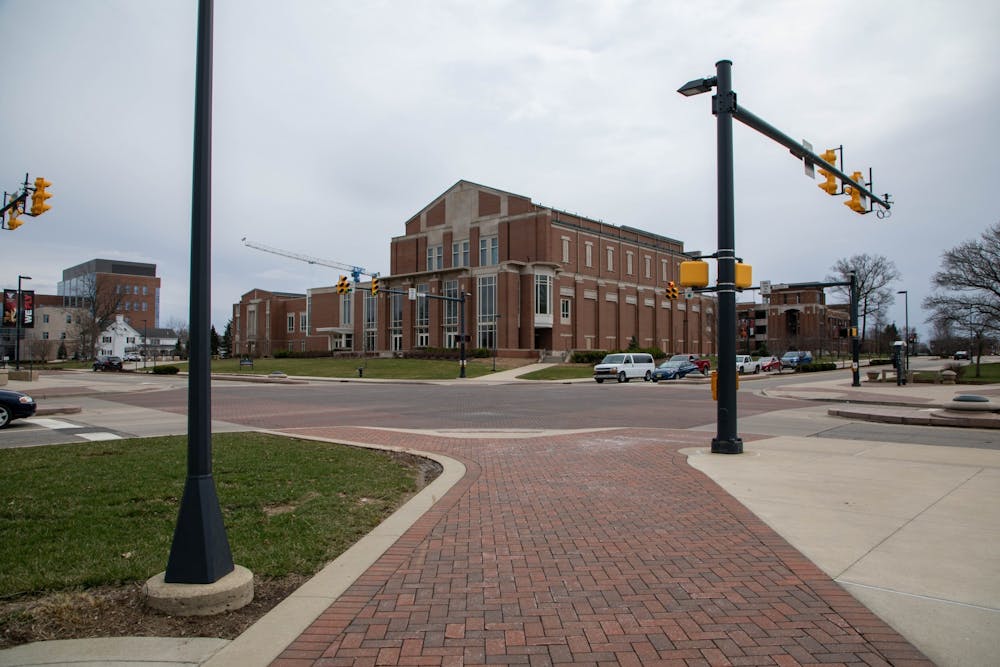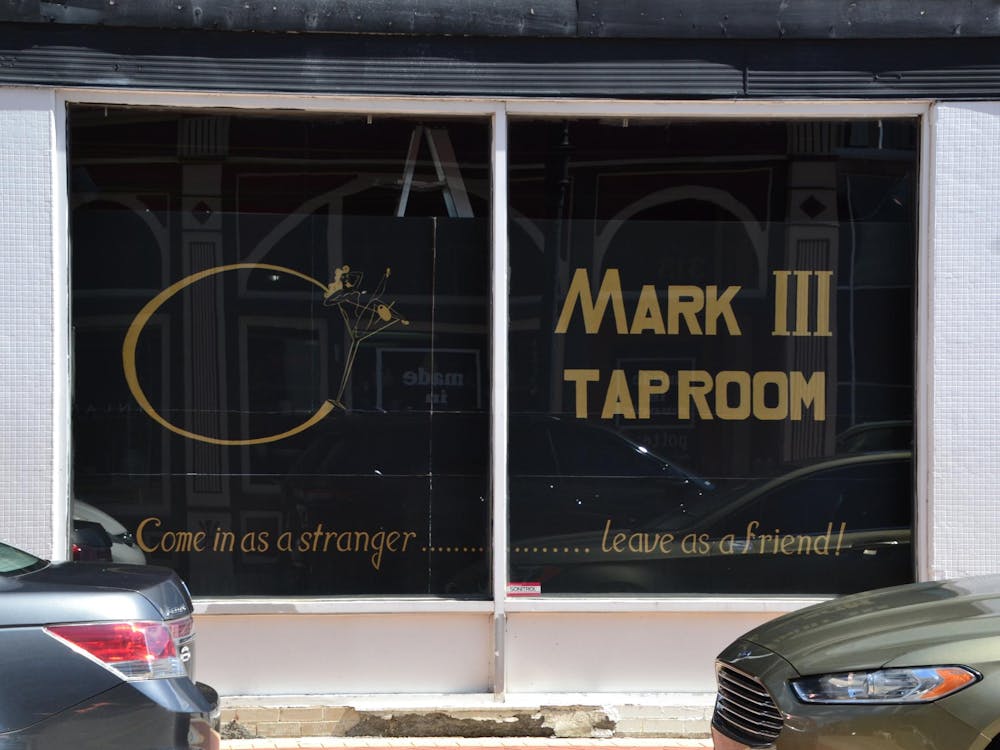What are the spring 2021 schedules for Ball State’s peer institutions?
Indiana University is beginning classes Jan. 19 online with in-person instruction beginning Feb. 8. Spring break is canceled.
Purdue University is beginning classes Jan. 19 with no spring break, but has scheduled three reading days throughout the semester for students and faculty to take a break from classes, but not travel away from campus.
University of Notre Dame is beginning classes Feb. 3 with no spring break in 2021.
Paaige Turner is leading the Academic Planning Group task force in its research. Turner, dean of the College of Communication, Information and Media, said the task force was formed in June and includes faculty from each academic college.
Decisions of Ball State’s peer institutions, including Indiana public universities and universities in the Mid-American Conference, were considered before the task force decided to adapt the spring 2021 semester schedule, Turner said.
“We’re seeing very similar spring schedules from other institutions,” she said. “We would look at other institutions as sort of a fact check to make sure there’s nothing that we’re missing or something we hadn’t considered.”
In addition to looking at other institutions and following Centers for Disease Control and Prevention (CDC) guidelines, Turner said the taskforce consulted research by Ball State professor Paul Niekamp.
Niekamp’s research of 1,326 total universities across the U.S. found college students who traveled during spring break in 2020 brought back coronavirus infections to their universities and home residences.
“There is an increase in growth rates during the two weeks following the end of spring break,” Niekamp said in his study. “Our estimates provide evidence that mortality growth rates may have increased four to five weeks after students returned from spring break.”
To decrease the amount of student travel, Niekamp said universities are making the right decision by canceling fall and spring breaks and completing instruction online after Thanksgiving.
“Canceling spring break is one of the easiest ways that universities can reduce systematic long-distance student travel,” Niekamp said. “Spring break travel can be particularly high-risk because many students fly, many go to popular beach destinations, and once at these destinations, some students engage in population-dense social activities.”
Niekamp said he commended Ball State administrators for canceling spring break but sympathizes with disappointed students.
“I understand that right now is a tough time for students, and many researchers are concerned about a pandemic-driven decline in mental health,” he said. “The COVID-19 pandemic has created situations that are not easy for anyone. That includes students, faculty and administrators.”
Turner is confident the spring 2021 semester will include in-person instruction, but she said the Academic Planning Group is prepared to adapt its plans.
“We’ll take things we learned this semester and use them as we’re building the spring semester,” she said. “I’ve been part of this planning process since March … and the amount of work, and thought and consideration that’s gone into this is unfathomable.”
Turner said multiple facets of information will be considered in determining how spring 2021 courses will be delivered, including faculty and student feedback, as well as research and guidelines as they develop. All current fall 2020 primary instructors have been asked to respond to a survey to share how administrators can best support them in spring 2021 course preparation.
Feedback and health guidelines, Turner said, "will be part of a group of information used to triangulate and inform the decision process."
On Sept. 24, Ball State University Provost Susanna Rivera-Mills sent out an email to students regarding the spring 2021 semester, stating that the start of the semester will be moved to Jan. 19, 2021, and spring break has been canceled to try to keep COVID-19 cases at a minimum.
Rivera-Mills spoke on behalf of the university, understanding that this situation is not ideal, but it is what the university must do to keep students on campus and classes in person.

“I was pretty mad they took away our spring break,” junior Laura Denk said. “I think I’d rather get out a week early than stay home for Christmas a week longer.”
Denk said she goes back to her hometown during spring break and works, making extra money without having to worry about school. The week-long break from school serves as a time for mental rejuvenation for students, whether that be through traveling or returning home.
“I wouldn’t say it’s necessary, but it is enjoyable. It helps to break up the work,” Denk said.
Denk also said she believes the university has not done enough when it comes to dealing with COVID-19.
“I don’t feel safe on campus. I don’t feel safe in my residence hall. I don’t think the university cares as much as they say they do,” Denk said.
Sophomore theater education major Emma Mikkselson agreed that the week-long break is beneficial and that she uses it to relax and do anything but schoolwork.
“I know right now, I need a break, but we’re not getting one,” Mikkelson said. “I feel like next semester, I’m going to be like, ‘Oh God, I need a break,’ and yet, there we are, trucking along forever.”
Mikkelson said that last year, a group of her friends had gone to New York for spring break, a COVID-19 hotspot at the time, and had come back to school and spent a week with her before being sent home for the remainder of the semester. By canceling spring break, Mikkelson said she feels the university made the right decision because fewer students could potentially be exposed to the virus.
Although this decision may be what is best for keeping COVID-19 case numbers down, Mikkelson said, she doesn't know if it is what is best for students’ mental health.
“I feel like we’re taking good precautions, but I also feel like it’s too soon to say what will happen,” Mikkelson said. “By the time spring rolls around, I think things might calm down.”
Like Denk and Mikkelson, senior business administration major Isaac Cohen said he does not go on vacation during spring break, but he is not upset about it being canceled. Cohen believes a longer winter break in place of a spring break will be better for the student body and help decrease COVID-19 cases.
“I usually just go back home to my parents’ house, so I’m not missing out on vacation,” Cohen said. “I am worried about not getting a break just because I use that time as a mental break.”
Cohen agreed with Mikkelson and said he believes it is too early for the university to make a decision because no one knows what the case numbers will be like when the spring semester arrives.
“We’ve only had four weeks to look over cases, so I don’t think there’s a lot to go off of,” he said. “I think we should’ve waited a few more months when there was more time to analyze the data.”
Senior computer science major Ian Shepard said he was planning on spending time with his family during spring break. While not going on vacation, he said he is worried for what could happen if there isn’t a break in the middle of the spring semester, feeling that students may not have motivation to complete their schoolwork.
“I’ve had many friends who looked forward to spring break as a time to get away,” Shepard said. “With that taken away, I’m more concerned about the mental health of the student body rather than the physical damages.”
Shepard said it’s hard to say if the university is making the right decision because he isn’t an expert on the matter, but he thinks this decision will help keep cases down.
“I think not allowing any breaks encourages students to stay put on campus, which does help prevent the spread of COVID-19,” he said.
Jennifer Grouling Snider, associate professor of English, said the added time onto the winter break will give professors more time to prepare for the spring.
“I think it's been hard for everybody to not have fall break [and] to not have any time off during the semester,” Snider said. “But I can see the logic of not having spring break and like a whole week off where people go all over the place.”
The process of preparing for spring classes starts in October, she said, but sometimes professors don’t know what they are going to teach until November or December.
“Often, we pick our textbooks earlier, but then as far as planning all the lessons and the projects — usually, that's a big part of the holiday break, where it takes, you know, a couple of weeks or more to dive into that,” Snider said.
Teaching writing online is not as difficult to adapt as the group work and workshopping, she said. Currently, she is teaching graduate students how to teach first-year writing courses, which they teach next semester.
She and her graduate students are still working on figuring out how their teaching will look next semester, Snider said. Some students will be teaching online for health concerns, while others will be in person provided they have a large enough room.
Turner said she is impressed with what faculty and students have been able to accomplish in classes this fall.
“Our ability to be successful in giving our students an on-campus experience, keeping everyone safe and ensuring we’re meeting our student learning outcomes,” she said. “It has impressed [me] by what we have been able to do within all these circumstances.”
Contact Charles Melton with comments at cwmelton@bsu.edu or on Twitter @Cmelton144. Contact Grace McCormick with comments at grmccormick@bsu.edu or on Twitter @graceMc564. Contact Maya Wilkins with comments at mrwilkins@bsu.edu or on Twitter @mayawilkinss.





